Review of Gandhi
Introduction
Gandhi, a name that is consistently misspelled. Even one of our local tandoori restaurants is called the Ghandi Tandoori. If Indians can`t spell it right, what hope is there for everyone else? I`ll endeavour to keep my aitches in the right place for the remainder of this review. The twentieth century was the era that the cult of fame and celebrity came into being, when everyone began looking for their fifteen minutes. Yet when it comes to icons, figures so memorable that everyone will recognise them, there are precious few, people like Albert Einstein and Marilyn Monroe, who rose to prominence and changed the world in their own way. To that list must be added the name of Mohandas Karamchand Gandhi. His contribution wasn`t to pop culture, or science, but his life had a profound effect on millions, and perhaps what he achieved was the most significant accomplishment of all. To distil a life as momentous as his into three hours would be difficult to say the least but in 1982, thirty-four years after Gandhi`s assassination, Richard Attenborough`s epic was released to universal acclaim, garnering nine Oscars including Best Actor for Ben Kingsley in the title role.
Gandhi`s life is explored from his early years from 1893 as a lawyer in South Africa, fighting for the rights of immigrant Indians, to his death at the hands of a fanatic in 1948. The important moments of his life are chronicled, his realisation that the unjust rule of the Raj was at an end, and choosing to effect change through non-violent means such as civil disobedience in the form of general strikes, or breaking British laws prohibiting the production of salt. He also lamented the deep divisions in Indian society, both down religious and caste lines, and attempted to create a self-sufficient India through village industry. His ultimate dream of a united secular India was to be denied though.
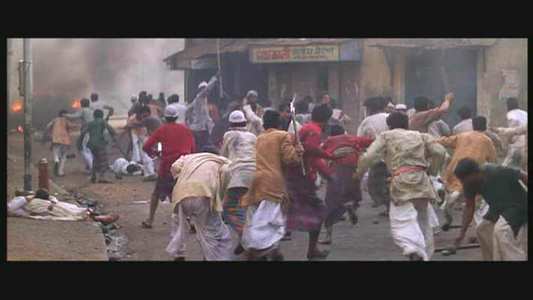
Video
Gandhi is presented in a 2.35:1 anamorphic format. The image is quite good for the most part, with only a hint of dirt and print damage, with just a touch of grain. The transfer isn`t bad, with the picture clear and sharp, with only occasional scenes looking a little soft. I did notice some compression artefacts around fine detail, but hardly enough to detract from the viewing experience. Gandhi is one of the last true epics, when you hear figures like 400,000 extras in a scene, the mind finds it difficult to comprehend the scale of the production. There are some beautiful scenes to look at, with the Indian landscapes used liberally to give the film space.
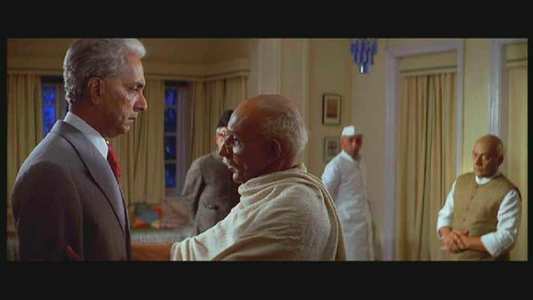
Audio
You get a choice of DD 5.1 English and DD 2.0 Surround French and German tracks. The 5.1 is advertised on the case an `Upmix` so you won`t be surprised that it isn`t particularly dynamic. You do get a certain ambience in some scenes, but when dialogue shifts around the soundstage, it has a forced quality. The music by George Fenton and Ravi Shankar is perfectly suited to the material, majestic and stately while complementing the Indian story.
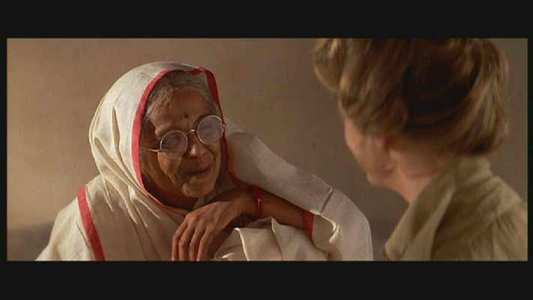
Features
The disc comes inside a Scanavo case, packaged with a 4-page booklet with production notes and the chapter headings.
Perhaps the most informative and appreciated extra is the Interview With Ben Kingsley. It lasts 20 minutes and was recorded in 2000. In it he talks about playing the role, the reception he got in India and the rest of the cast.
The Making Of Gandhi Photo Montage is a 5-minute slideshow with stills from the film and behind the scenes.
The Word Of Mahatma Gandhi is a 2-minute slideshow of captions with memorable quotes from the man.
There is 10 minutes of newsreel footage on this disc, reports regarding Gandhi`s visit to England and his fast. It also has rare footage of him speaking on film.
There are cast and crew filmographies as well as a long (5 minutes) theatrical trailer.
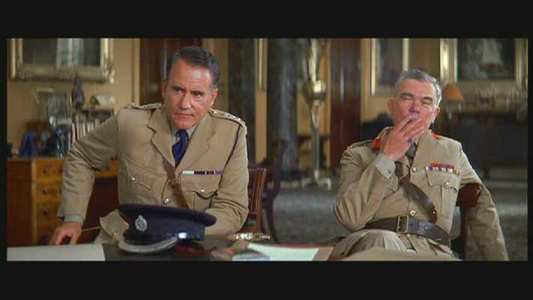
Conclusion
I have mixed feelings about Gandhi, the film and the man, although I do have a perspective shaped by my upbringing, as opposed to learning about him in a school textbook. There is no doubt that I wouldn`t be here today, typing this review were it not for the man`s accomplishments. His policy of non-violence and passive disobedience allowed for a relatively bloodless exit by the British from India, the resulting goodwill has left strong ties between the two nations ever since. It`s a telling fact that India, now an economic power in her own right, refused aid from the rest of the world after the recent Tsunami, and indeed was a net contributor of aid. Yet, India still felt obligated to accept aid from the UK as a gesture and acceptance of a shared history. Similarly, while Gandhi`s philosophy of village industry may seem quaint and unworkable today, and indeed seemed quaint in 1950, the self-reliance fostered in successive governments under Nehru and his daughter as a result of Gandhi`s philosophy, means that when it comes to third world debt, India is rarely mentioned. India is a nation that stands proud, and is one of the world`s most powerful developing economies. It is doubtful it would have achieved this had it greedily accepted aid and succour from the US and Soviet bloc, when it was offered on a platter during the Cold War. The peaceful handover from British to Indian rule also meant that institutions such as the Indian Civil Service remained intact. As a result, India is one of those rare developing nations that has avoided the dreaded words, military coup, and to this date remains the world`s largest democracy. Gandhi`s accomplishments are immeasurable.
But was he really a man without flaws? The argument could be made, that following World War II, and faced with rebuilding a nation, the United Kingdom could ill-afford to administer a nation of 300 million 5000 miles away. The independence of India was inevitable in 1947, and Gandhi happened to be the right man, in the right place at the right time. The idea of a village economy feeding a billion souls is laughable, even in 1947 India would not have prospered without industrialisation. Gandhi was also a man who lamented the caste system, who believed that religious differences could be put aside for the common good. Yet nearly sixty years after his death, the caste system goes on unabated in India. Also the British had barely left India, when religious hatred nearly tore the new nation apart. I`ve got family members who escaped Pakistan and Calcutta before the violence of Partition erupted. The bloodshed of that time makes the civil unrest under the Raj seem like a little pushing and shoving in a queue by comparison. As shown in the film, Gandhi managed to quell the rioting in Calcutta by fasting in protest. But his legacy must surely be tainted by the incessant wars and conflicts that have been fought between Pakistan and India since independence, culminating in the nuclear brinkmanship of the new millennium. While tensions between the two nations appear to be at an ebb, internal tensions keep appearing in India itself. Hatred in recent years once again flared between Hindus and Muslims, first at Ayodhya and more recently in Gujarat. The Sikhs rose up briefly in the early eighties in a flare of nationalism. While people uphold Gandhi`s principles as an ideal to live by, the reality is far from pacific.
The first time I saw Richard Attenborough`s film, I had hoped for some reflection of the dichotomies that shaped modern India, some of the politics of those turbulent years just prior to independence. In that hope I was thoroughly disappointed. Gandhi is a straightforward biopic that aims to show as much of his life as possible. Lengthy though the three-hour running time is, it is barely sufficient to show a life as momentous as Gandhi`s. What results is a series of highlights of his life, with years passing by in minutes. We get an idea of the events that shaped his life, but Attenborough treats his subject with almost biblical reverence. This is a Gandhi that rarely strays from the path before him, is rarely angered, or mistaken. Given the course of his life, it is easy to draw parallels with religious prophets and figures from thousands of years ago. His ultimate betrayal at the very hands of those he sought to save isn`t out of place in any biblical epic. I can understand treating Gandhi that way, such a beloved figure must be respected, but less than forty years had passed between Gandhi`s death and the making of this film. I would have liked to see the character fleshed out and given some reality beyond the textbooks. Despite Ben Kingsley`s astounding performance in the role, there are times that the movie felt like a series of quotes from Gandhi, rather than a portrayal of a life.
It is understandable why Gandhi remains a cipher, but the bigger problem comes in the supporting players. It must be understood, that in 1980, India was an insular nation, almost Communist in its isolation from the world. This was the era of the Nehru dynasty, and with his daughter Indira Gandhi as prime minister, getting this film made would have ultimately required her permission. For that reason, the politics of Independence, of Partition are completely subsumed by the politics of the subcontinent in 1980. Jawarlahal Nehru is painted as a man who has the best interests of India at heart, who loves and worships Gandhi but through painful long suffering tries to curb Gandhi`s excesses. The only time we something approaching Machiavellian from the character is during the final fast, when he waits four days to go to Gandhi`s side so that he can milk the situation for political gain. In sharp contrast is the portrayal of Jinnah, he is made to be a villain of Bollywood proportions, his educated accent, upright posture, and infernal cigarette is calculated to inflame audiences. It`s a shame he lacked a moustache to twirl. The simplification of character does the film a disservice. The glossing over of politics is lamentable, I would have loved to learn the truth about partition. In engineering the Partition, Gandhi`s ideals were betrayed by the very men who flocked to his banner and used his message for their own political gains. By my parents` accounts it was a rushed and ill-thought out affair, with blame for the resulting carnage resting in various measures on all parties, Nehru, Jinnah, and the departing Viceroy Mountbatten. Instead, Gandhi as a film remains a simple telling of the man`s life, rather bluntly used as a propaganda tool.
Yet there is something about Gandhi that never fails to stir me. There is something about seeing the nation`s struggle for independence that just resonates with my cultural heritage. I`m always moved by the massacre scene at Jalianwala Bagh, not least because I have actually stood there, seen the bullet holes left untouched in its ancient walls. Despite everything, Gandhi was an exceptional man, an exceptional life, one that we should all aspire to. Seeing the key moments in his life serves as an exploration into our own humanity. Also Attenborough`s film has been described as the last true epic. With 400,000 extras in one scene before the age of CGI, one cannot help but be awed at the sheer spectacle.
The film truly deserves a two disc special edition, the extras are meagre and crammed in on this disc. Gandhi as a film is immense, it`s a religious epic, political statement, all these things and more. However it ultimately lacks personality, opting for repeating the textbook. A worthwhile film.
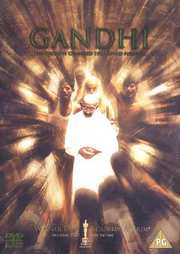
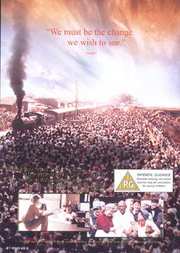
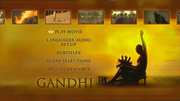
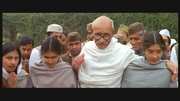






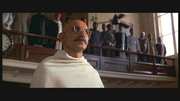

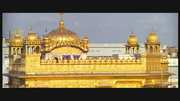
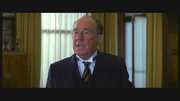

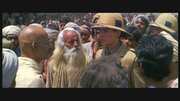
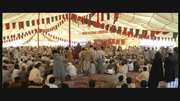
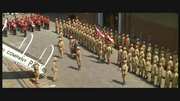
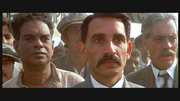
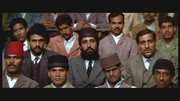
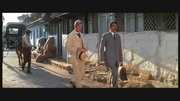
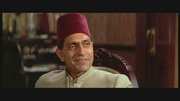

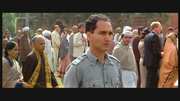
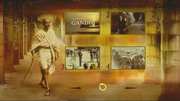
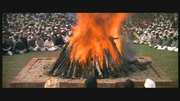
































Your Opinions and Comments
Be the first to post a comment!